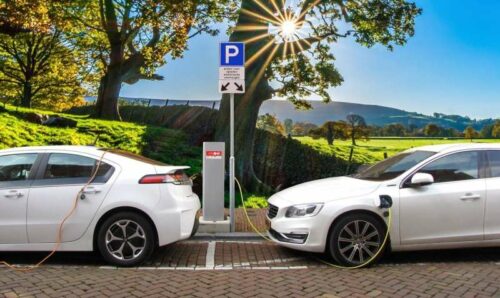A new study unveils zinc-air batteries’ potential to outpace lithium-ion, revolutionizing electric vehicles and sustainable energy solutions for a greener tomorrow.

A study conducted by Edith Cowan University (ECU) has highlighted zinc-air batteries as a superior alternative to their lithium-ion counterparts. The research revealed that while lithium-ion batteries remain a global preference for electric vehicles, they grapple with cost, finite availability, and safety challenges.
Given the rise of next-generation long-distance electric vehicles and electric aircraft in the industry, the demand for safer, economically viable, high-performing battery systems that outperform lithium-ion batteries is escalating.
Understanding Zinc-Air
A zinc-air battery is composed of a zinc anode and an air cathode. The primary drawback of such batteries was their restricted power output, attributed to air electrodes’ subpar performance and short lifespan. The recent innovation has changed the game. Engineers have successfully revamped the design of zinc-air batteries by leveraging a blend of materials like carbon and more cost-effective iron and cobalt-based minerals.
The revamped design has proven to be so effective that it reduces the internal resistance of the batteries. Their voltage approached the theoretical maximum, leading to a peak power density and long-term stability.
The researchers claim that it completely transforms the energy storage sector and plays a crucial role in the broader vision of crafting a sustainable society for the future. By enhancing energy storage capabilities, they significantly reduce their reliance on non-renewable fossil fuels. In doing so, they also address and strive to mitigate the negative environmental consequences stemming from the utilisation of conventional energy sources. In essence, this development is not just about better batteries; it’s about creating a greener, more sustainable world for future generations.
Leveraging natural resources like Australian zinc and air amplifies these advanced zinc-air batteries’ economic feasibility and potential for upcoming applications.
While renewable resources like solar, wind, and hydropower are pivotal for the future of clean energy, their intermittent nature doesn’t make them wholly dependable. Given the vast amounts of zinc in nations like Australia and the ever-present nature of air, this offers a remarkably reliable and practical energy storage option.







